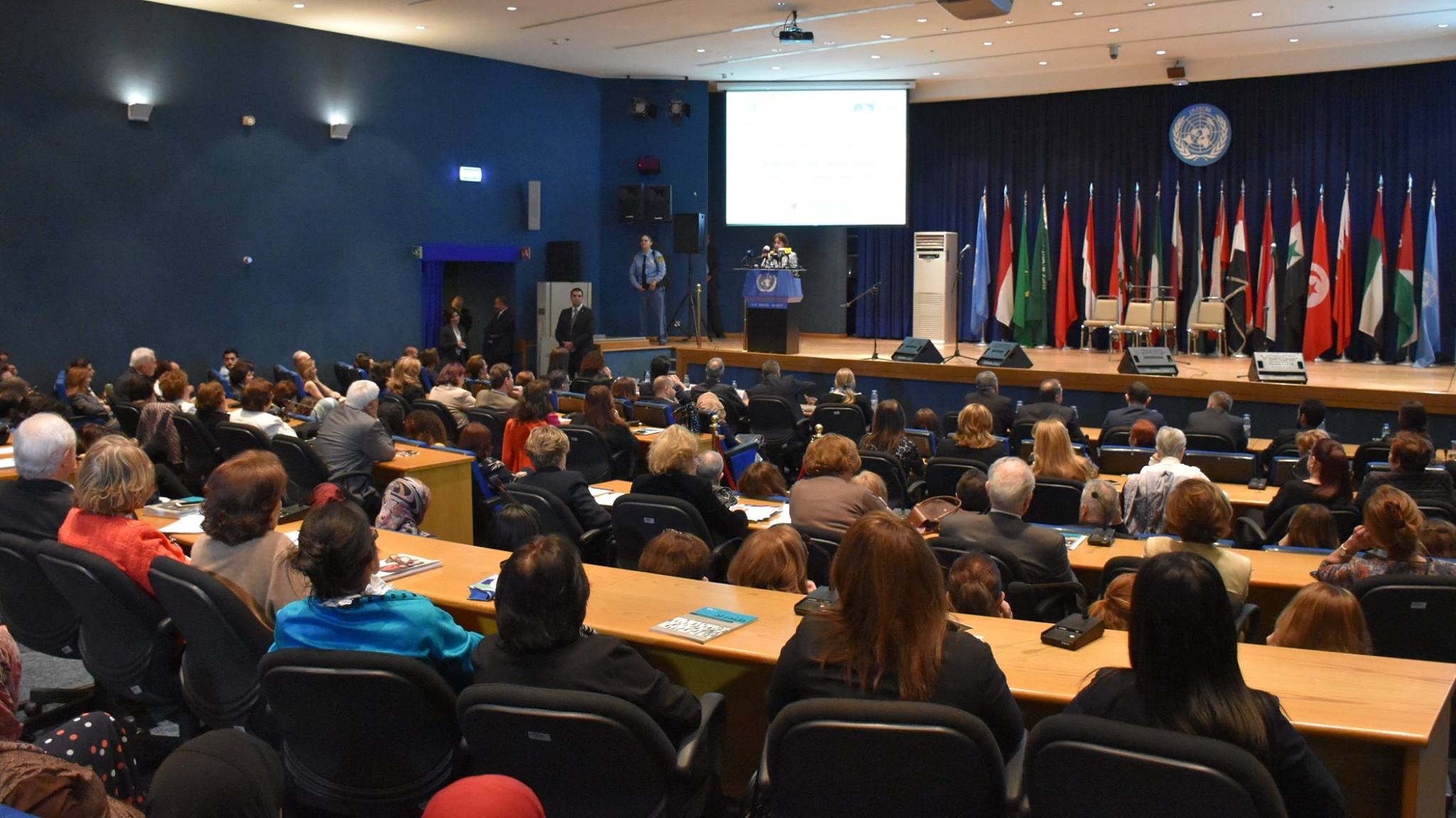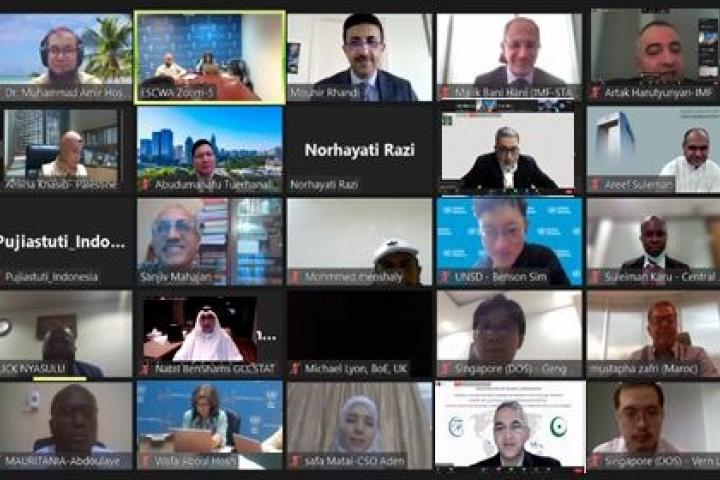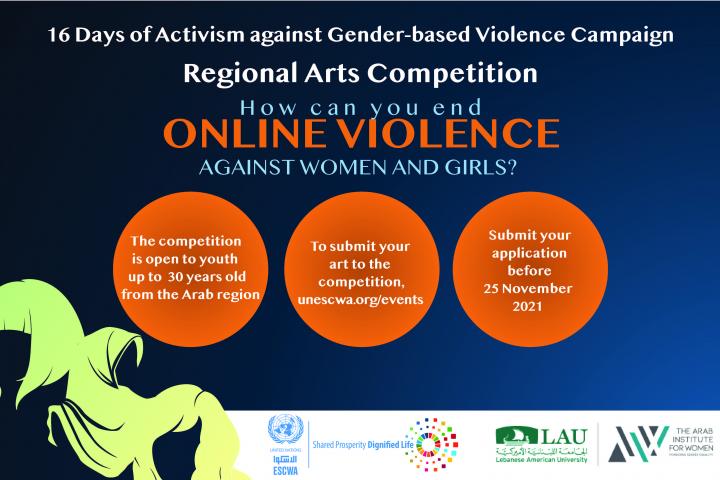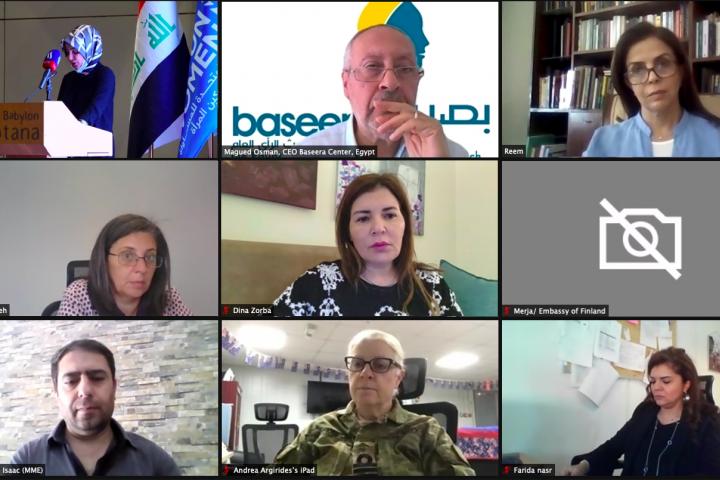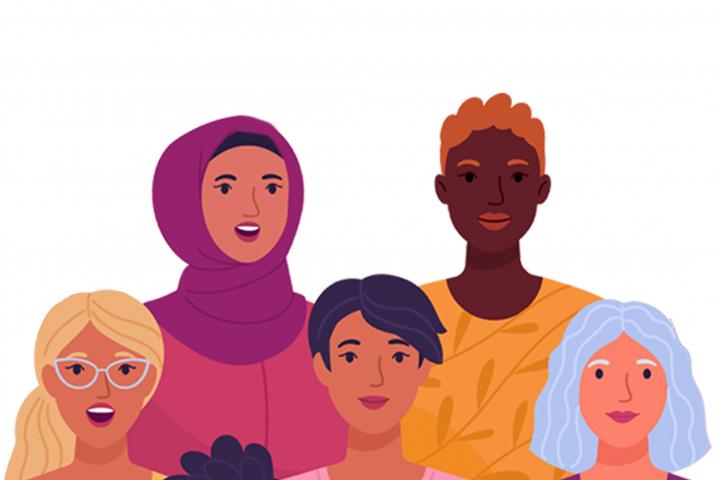ESCWA marked this year's International Women's Day in the presence of a host of diplomats accredited to Lebanon, music and movie stars, representatives of civil society and the media, in addition to ESCWA staff . The event, organized in cooperation with the Lebanese American University (LAU), featured film screening and music and play performances highlighting discrimination against women and gender inequalities. Statements were given by ESCWA Executive Secretary Rima Khalaf; LAU Vice-President for Student Development and Enrollment Management Elise Salem; Good Will Ambassador for the United Nations Environment Programme (UNEP) in the Arab Region, Lebanese singer Ragheb Alama; and Lebanese actress Nadine Al-Rassi.
In her statement, Executive Secretary Rima Khalaf said, “We are celebrating the many achievements of Arab women in sciences, literature and arts, but primarily in the art of survival. That in itself is no mean feat in some of our countries today, where the notion of place has become as ephemeral as time. Nations are transient. I am talking not so much about changes in their maps and borders, but rather about what those nations represent for their peoples when, instead of haven of stability, they have become a source of danger from which one must flee.”
LAU Vice-President Elise Salem, said that education is one pathway towards realizing gender equality. She also indicated that females make 51 per cent of enrollment at LAU with a disproportionately high ratio of females who graduate every year with distinction, contributing to making the Lebanese education system one of the best in the region.
UNEP Goodwill Ambassador Ragheb Alama reiterated in his statement the importance of men’s support to women in their mutual quest towards realizing societies founded on equality in rights and responsibilities. In her statement, actress Nadine El-Rassi emphasized that collaborative efforts to end injustice against women is the answer to protecting them of all forms of violence.
Art performances included a theatrical scene entitled Hayda Mish Film Masri (This isn’t an Egyptian Movie) which was presented by a group of LAU students and which demonstrated the forms and consequences of violence against women. A documentary entitled Change is in her hand, developed by the Office of the United Nations High Commissioner for Human Rights (UNHCHR) on women’s rights was also shown. The event concluded with a musical performance by Syrian singer Faya Younan, dedicated to Arab women, including the acclaimed song Mawtini (My Homeland). On the sidelines of this year’s International Women’s Day, a photo exhibition on violence against women by world known photographer Najad AbdulMaseeh, a Palestinian needlework exhibition by designer Suaad Amin Jarar and a display of organic food productions by Souk Al-Tayeb were organized.
